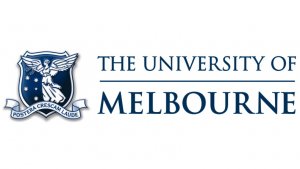McKenzie Postdoctoral Fellowships at Melbourne University
The McKenzie Postdoctoral Fellowships Program has been established to attract outstanding recent doctoral graduates to the University from around the world. The Program aims to recruit new researchers who have the potential to build and lead interdisciplinary collaborative research activities inside and across Academic Divisions. The University offers a leading and lively research environment that is internationally engaged, public-spirited and has many outstanding areas of research strength.
The objectives of the 2020 Program are to attract talented recent doctoral graduates in areas of research priority for the University. All applicants should promote research that aligns with the Research at Melbourne initiative.
The Program is highly competitive, with only ten McKenzie Fellowships and one Indigenous McKenzie Fellowship available each year.
Prospective applicants must discuss their interest in the Program with the relevant Academic Division at the University of Melbourne, prior to submitting their application.
Application processes vary between different faculties. Applicants must adhere to Faculty Expression of Interest processes and timelines in order to be considered for award.
Funding
The University will fund the Fellowships for a three year appointment commencing at Level A.6 in the University salary band plus superannuation.
Fellows will receive an additional $25,000 to be spent on project costs over the term of their Fellowship. Awards will be for a maximum of three years commencing 1 January 2020, but the start date may be deferred up to 30 June 2020.
Eligibility
Applicants must have been awarded a PhD from a university other than the University of Melbourne by the closing date. The PhD must have been awarded between 1 January 2017 and 20 August 2019.
At the time of application, applicants must not have held, or be holding, a fixed-term or continuing academic appointment at the University of Melbourne that is greater than one year. Where applicants have held multiple back-to-back fixed-term appointments, these should not be more than one year in total.
- Applicants may be drawn from any field in which the University has research strength, and must have an ability to contribute to research collaborations and programs across faculties or disciplines
- Applicants will be required to provide a declaration of support from the department/school in which they would be located if successful, but the criteria for selection will be university-based
- Assessment will take account of achievement relative to opportunity.
Eligibility Exemptions may be available for some applicants. For more information, please see the 'How to Apply' section below.
How to apply
- Review faculty/school processes You must ensure that you have completed any additional submission requirements specific to your Faculty/School and that you have an academic contact within your proposed Faculty/School who is willing to support your application. This contact must be listed in your application form.
- Academic contact Make sure you have an academic contact within your proposed host Faculty/School who is willing to support your application. Your proposed host Faculty/School can advise you as to how best to get in touch with an appropriate academic contact. The academic contact must be listed in Part A2 of the Application Form.
- Review the funding guidelines
- Complete the eligibility exemption request form
- If applicable, complete the eligibility exemption request form on SmartyGrants by 4 July 2019.
- Please note: Not all applicants are required to submit an EER. This is only applicable if you do not meet all the eligibility criteria in the Funding Guidelines. Eligible applicants may submit an application without submitting this form.
- Complete the application form and the application checklist
- Submit the application
- Submit your application via SmartyGrants by 3pm (AEST) 20 August 2019.
- Submit written testimonials
- Request your referees submit their written testimonials via email to mckenzie-application@unimelb.edu.au by 20 August 2019.
